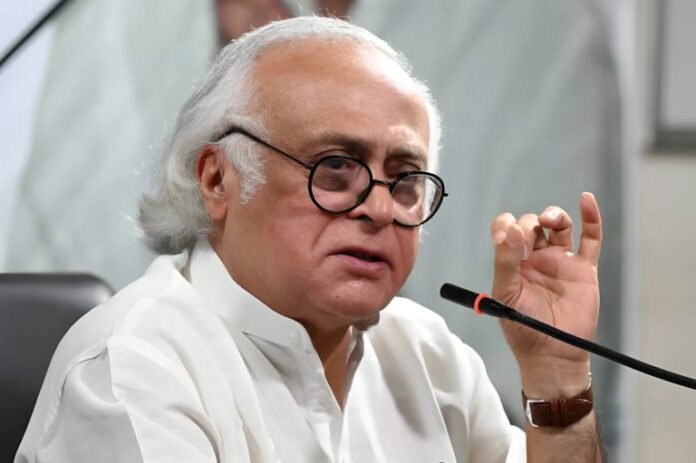New Delhi, Sept 30: The Congress party on Monday dismissed the Government’s claims of creating eight crore employment opportunities between 2021 and 2024, and the addition of 6.2 crore net subscribers to the Employees’ Provident Fund Organisation (EPFO) database, calling them “half-truths.”
In a strong statement, Congress general secretary in-charge of communications, Jairam Ramesh, criticized the Government’s assertions, stating that no amount of “spin-doctoring” can conceal the fact that the years 2014-2024 have been marked by “jobloss growth.”
Government’s Claims Under Scrutiny
Ramesh’s remarks were in response to the Government’s claims that its policies had led to the creation of eight crore new jobs between 2021 and 2024, citing RBI KLEMS data. He pointed out that this claim was challenged by the Congress earlier on July 15, 2024. The Government’s recent emphasis on the 6.2 crore net subscribers added to the EPFO database since September 2017 also came under fire. Ramesh criticized both sets of data as being incomplete and misleading.
Expansive Definition of Employment
Ramesh argued that the Government’s claim of eight crore new jobs is based on an expansive definition of employment, which includes activities like unpaid household work done by women, counting it as employment without acknowledging the quality or circumstances of the jobs created.
A large portion of these employment figures, he said, came from low-productivity sectors like informal work and agriculture, rather than salaried, formal employment. “The share of salaried, formal employment in the labour market has decreased,” Ramesh emphasized, pointing out that the COVID-19 pandemic saw many workers return to informal or agricultural work, which was then counted as “new employment.”
Discrepancies in Employment Growth
Ramesh illustrated how the Government’s statistics were skewed, explaining that factory workers, teachers, and miners who lost their jobs during the pandemic and were forced to return to farming or agricultural labour were counted as newly created jobs in agriculture. This, he said, was not job creation, but a shift to lower productivity, poorly paid employment, which is being misrepresented as progress.
Population Estimation Concerns
Ramesh also highlighted issues with the KLEMS data used by the Government to justify its employment growth figures. He noted that, in the absence of a Population Census since 2011, the data relies on estimated population levels, which several economists believe to be overestimated, thus leading to inflated job creation figures.
EPFO Data Misleading
Regarding the 6.2 crore new subscribers added to the EPFO database, Ramesh argued that the data only reflects organised sector employment, which constitutes less than 10% of the total workforce. He further explained that many of these workers were already employed but were brought under the EPFO due to a Supreme Court ruling in 2020, which mandated the inclusion of contractual workers in establishments with over 20 employees. As such, many of these workers are not in new jobs, and their inclusion in the EPFO database is simply a result of regulatory changes.
Additionally, Ramesh noted that the online registration process for EPFO has become simpler and more accessible, leading to more workers being registered but not necessarily reflecting new employment. He also pointed out that establishments growing from 19 to 20 employees are reflected as creating 20 new jobs in the EPFO data, even though the net job creation is just one.
Economic Failures Highlighted
Ramesh took the opportunity to draw attention to India’s unemployment crisis, noting that the unemployment rate today is the highest it has been in 45 years, with the unemployment rate for graduate youth standing at 42%. He attributed this crisis to misguided economic policies implemented by the Government over the past decade.
According to Ramesh, decisions like the Tughlakian demonetisation, the rushed implementation of GST, the unplanned COVID-19 lockdown, and rising imports from China have decimated job-creating Micro, Small, and Medium Enterprises (MSMEs), exacerbating the unemployment problem.
PM’s Economic Policies Criticized
Ramesh also accused Prime Minister Modi’s economic policies of favouring large business conglomerates at the expense of smaller enterprises, thus stifling competition and contributing to inflation. He asserted that the Government’s economic mismanagement had created a crisis, which no amount of statistical jugglery could mask.
“Whatever the Government claims, the reality remains that 2014-2024 has been a decade of jobloss growth,” Ramesh concluded, emphasizing that the Government’s failures on the employment front have compounded the country’s economic challenges.



